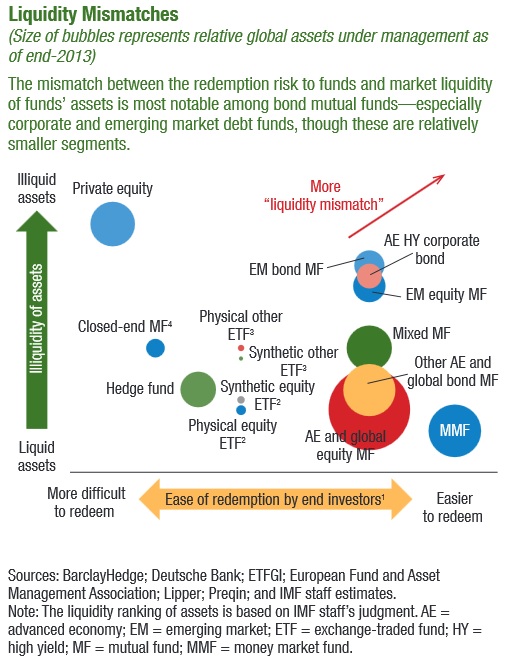The International Monetary Fund (IMF) has called for an overhaul of asset management regulation in response to increasing liquidity and concentration risks.
In an update to its Global Financial Stability Report, the IMF called for “global standards” for fund management groups to enhance “microprudential supervision”.
“Supervision of funds and asset managers is generally weak across jurisdictions.” —International Monetary FundThe update, “The Asset Management Industry and Financial Stability”, also argued for better liquidity rules and definitions for funds, to reduce the risks posed to investors in periods of stress.
“Supervision of funds and asset managers is generally weak across jurisdictions,” the IMF said. “As a result, no financial soundness indicators have been developed for the industry, and stress testing of funds and asset management companies by regulators has been rare—a major contrast with bank supervisory practice.”
The report added that “good practice” guidelines set up within the industry “provide some comfort”, but warned that fund managers were “likely to underestimate liquidity needs and the potential for correlated price effects” in periods of market stress.
While previous reports into systemic risks in fund management have tended to focus on leverage, the IMF’s report also highlighted potential risks posed by “plain vanilla” funds.
“Easy redemption options and the presence of a ‘first-mover’ advantage can create risks of a run [on a fund],” the authors wrote, “and the resulting price dynamics can spread to other parts of the financial system through funding markets and balance sheet and collateral channels.”
 Some bond fund managers have warned
of liquidity risks within fixed income markets as the volume of
trades has collapsed in the wake of the financial crisis, while big funds have
continued to bring in more assets.
Some bond fund managers have warned
of liquidity risks within fixed income markets as the volume of
trades has collapsed in the wake of the financial crisis, while big funds have
continued to bring in more assets.
The IMF’s report follows work by the Financial Stability Board and the International Organization of Securities Commissions on establishing “too big to fail” regulations and guidelines for asset managers. The two bodies have proposed measuring asset levels alongside other methods for determining the systemic importance of individual funds and asset management groups.
But the IMF’s researchers suggested that, due to the varying nature of risks depending on the asset class involved, the “investment focus” of a fund should be more important than the size alone.
“For a given fund size, the systemic risk contribution bears little relation to the size of a fund’s [parent company],” the IMF said. “The average contribution to systemic risk does not increase with a company’s size, at least not for the top asset managers considered here.”
The IMF’s full report on asset management can be found on its website.
Related Content:Why a $100B Fund is Too Big to Fail & Fresh Liquidity Warning from Bond Managers
